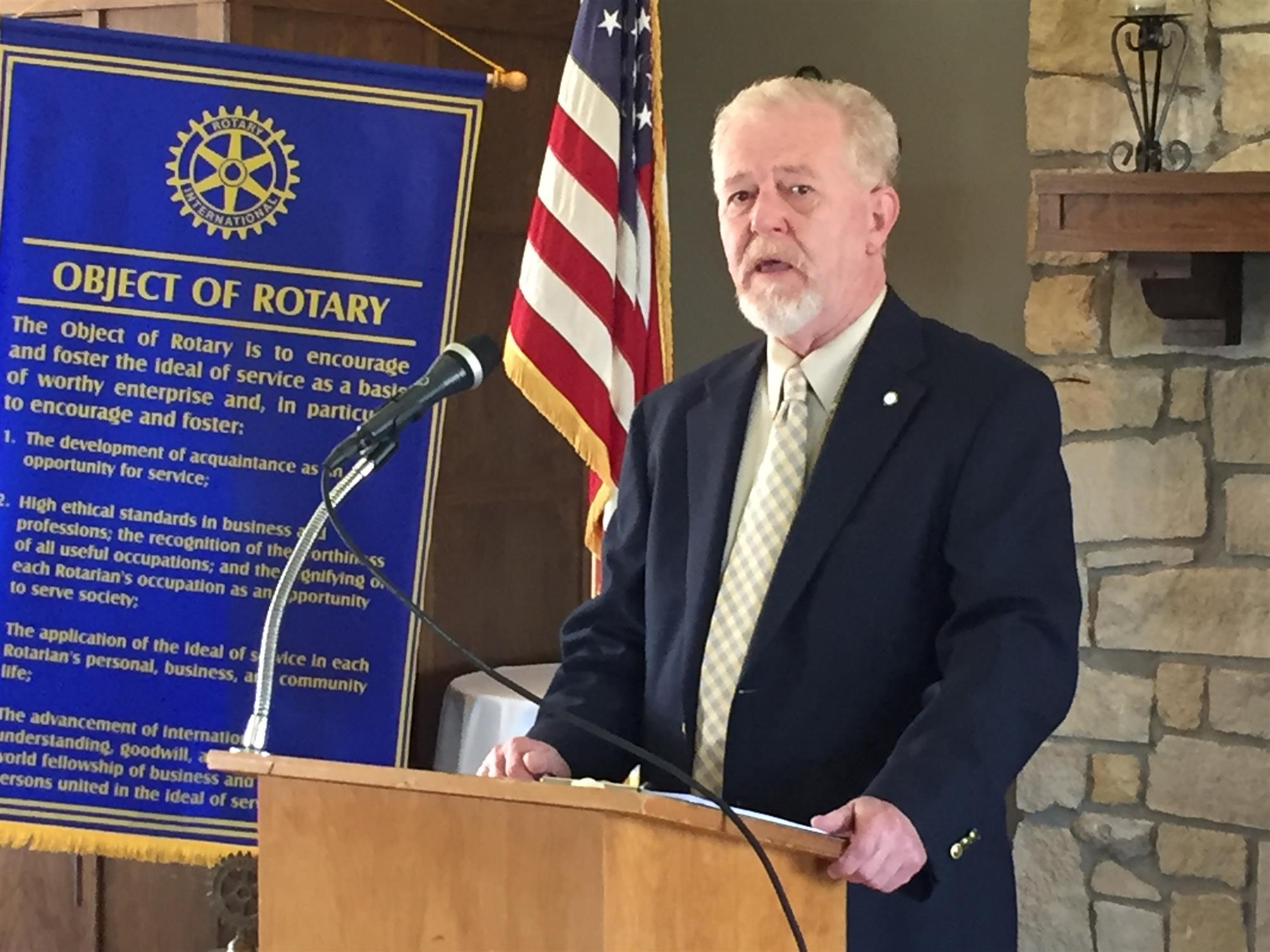Roger Heineken - Emporia in its Early Years
Posted by Jim Wayman on Feb 21, 2017
 Local historian Roger Heineken talked about Emporia in its early years 160 years ago. Founded by investors of the Emporia Town Company, including 19-year old Preston Plumb, the town was laid out in a one-mile square. Investors in the Emporia Town Company got free land. Preston Plumb, with his newspaper publishing expertise, was needed to promote the new community.
Local historian Roger Heineken talked about Emporia in its early years 160 years ago. Founded by investors of the Emporia Town Company, including 19-year old Preston Plumb, the town was laid out in a one-mile square. Investors in the Emporia Town Company got free land. Preston Plumb, with his newspaper publishing expertise, was needed to promote the new community. The purpose of the Emporia Town Company was to develop the local amenities to attract potential Emporians. The investors were intellectual and purposeful in what they did. The name "Emporia" is Greek for trade center, or a busy place of commerce. The streets close to the town center were named with similar connotations...Commercial Street, Market Street, Merchant Street. Other streets included names like Constitution, State, Congress, Mechanic, Union, and Exchange. Streets toward the outer perimeter included names like Elm, Cottonwood, Rural, Neosho, and Sylvan.
Early on there were as many as 20 saw mills along the rivers producing needed lumber. In 1858, the first well was dug, and parks were established (Humbolt and Freemont). Just two years later, the population was nearly 850. Perhaps the early residents were attracted by the abolitionist ideals of the founders and other early settlers. Preston Plumb became a legislator, and successfully lobbied for colleges and railroad access. From the 1890s to World War I, the community had a booster mentality with the Business Men's Association (later becoming the Chamber of Commerce). Street Fairs were attracted, including Buffalo Bill Cody...a superstar attraction of the time. Inexpensive excursion tickets by railroad were marketed to come to the street fairs. It all seemed to work by attracting 15,000 to the matinee performance and 10,000 to the evening performance. The first automobile west of the Mississippi River was the featured attraction of another street fair and parade. The population soared to 7,500 by 1898. The Committee of Fifty was formed to launch industrial activity that continues in Emporia today.
William Allen White was a founding member of the Rotary Club of Emporia 100 years ago. He was progressive in his racial beliefs, and ahead of his time in discussing social issues. Domestic violence and first amendment issues were discussed in his newspaper editorials. Indeed, Will White became a very influential Kansan. Local historical bus trips are being planned in March, and perhaps again in mid-summer.
